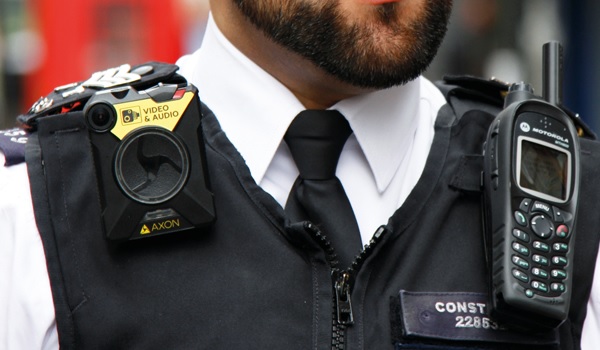Further ten forces join national mobile fingerprinting trial
One hundred mobile Lantern fingerprinting devices were rolled out to a further ten police forces last month, following initial success.

One hundred mobile Lantern fingerprinting devices were rolled out to a further ten police forces last month, following initial success.
It will bring the total number of devices on trial to 200, across 20 forces.
Launched in November 2006, the hand-held device enables the capture of fingerprint details suitable for identifying individuals in an operational environment for the first time. It gives real-time searching of the national fingerprint collection on the National Automated Fingerprint System (IDENT1) which allow officers to establish the identity of anyone whose fingerprints are held on the database without having to take them into police station.
They work by electronically scanning in a fingerprint which is sent, using encrypted wireless transmissions, to a database where it can be cross-matched against the 7.5 million prints held on file. Any possible matches are identified and transmitted to an officer in minutes.
Lanterns aim is to speed up the process of establishing a persons identity, allowing officers to make better informed decisions about how to proceed at the point of interaction with an unknown person they suspect of committing an offence.
The piloting of these devices over the last 18 months has shown significant time savings when police officers are trying to establish the identity of persons stopped in the street:
Of the forces using Lantern together with automatic number plate recognition (ANPR) and for the cases which showed a time saving, the average was more than an hour per stop.
British Transport Police (BTP) saw its encounters achieve a time saving average at around 30 minutes per case.
In a survey of officers, 90 per cent estimated that Lantern was saving at least 30 minutes per case.
These savings were of particular benefit on Friday and Saturday evenings when police officers were at their busiest responding to calls.
Other benefits include:
The public enjoying a faster response.
Officers able to access increased support and back-up, making their jobs safer.
Custody suites having to process less prisoners, leading to improved prisoner care overall.
Assistant Chief Constable Peter Goodman of Derbyshire Constabulary, and senior responsible owner for the project, said the second phase of this project reiterates the focus of the police service to put more officers on the street.
The impact that Lantern and other similar projects has on policing is vast and I look forward to evaluating the progress of the project within my force and across the other pilot forces, he said.
The new forces using Lantern are: City of London Police, Durham Constabulary, Avon and Somerset Police, Thames Valley Police, Kent Police, Surrey Police, Derbyshire Constabulary, Leicestershire Constabulary, Merseyside Police and Greater Manchester Police.
Inspector Paul Palmer, who is working on the pilot for Surrey Police, said: Im pleased Surrey is one of the forces taking part in the pilot because it allows us to see first hand how these devices work, to test their technical capabilities, and establish whether they would be a useful piece of kit for officers to have at their disposal.
Being able to carry out fingerprint checks at the roadside has the potential to save a considerable amount of time and allow officers to spend more of their shift out on the streets rather than inside a police station.
In Surrey we have allocated devices to different teams, including roads policing and ANPR, and will be watching with interest to see how they impact on operational activity over the next six months.
Durham has taken delivery of the mobile technology and is already reaping the benefits, said a spokesperson for the Constabulary.
Impressive results include identifying an unconscious man and finding someone wanted by another force.
Their use has also led to a number of arrests. About 50 road policing and core officers from the south of the county



